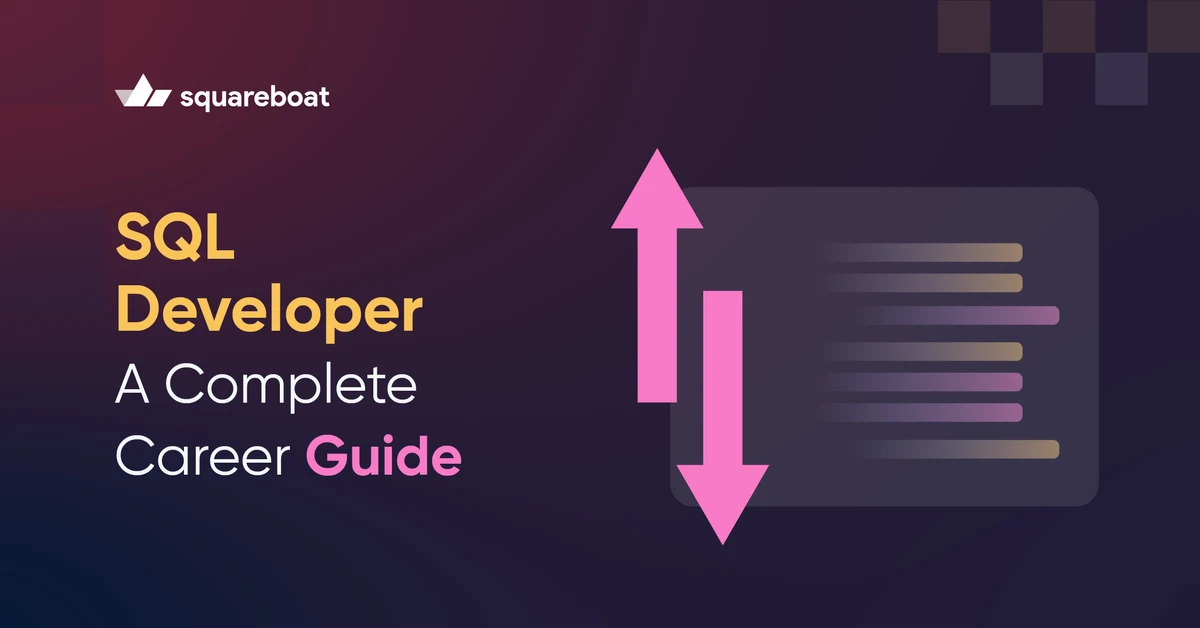Data is the new oil—organizations across the globe are investing heavily in infrastructure that can process, analyze, and store massive volumes of structured data. At the heart of this transformation stands the SQL Developer, a key figure in building scalable data solutions. With the rise of cloud-native databases, real-time analytics, and serverless architectures like BigQuery and Snowflake, SQL expertise has become non-negotiable in data-driven environments. As industries shift toward automation, predictive analytics, and regulatory compliance, SQL Developers are in higher demand than ever. In this article, we’ll explore what it takes to become one, what tools you need, and where the role is headed.
Core Responsibilities of an SQL Developer
An SQL Developer does far more than just write queries. They architect, optimize, and secure the entire data layer of an application. Let’s break down their key responsibilities:
1. Writing Efficient Queries
Your bread and butter is SQL. You write complex SELECT, INSERT, UPDATE, and DELETE statements daily. But it's not just about getting results—it's about performance. You know how to write subqueries, joins (especially INNER, LEFT, and SELF joins), and CTEs that don’t crush server resources.
2. Database Schema Design
You design normalized relational schemas with well-defined primary keys, foreign keys, unique constraints, indexes, and data types. You understand when to normalize and when to denormalize based on access patterns. You think in terms of entity relationships, not just tables.
3. Building Stored Procedures and Functions
Instead of repeating business logic across the app, you encapsulate it in stored procedures, user-defined functions (UDFs), and triggers. These reduce duplication, improve maintainability, and improve execution plans by precompiling the logic.
4. Query Optimization and Performance Tuning
You don't stop at functionality. You analyze EXPLAIN or EXECUTION PLANS, eliminate full table scans, use composite indexes wisely, and refactor nested subqueries into temp tables or CTEs. You live by indexing strategy, I/O cost, and query latency metrics.
5. Data Transformation and ETL
You extract data from raw sources, transform it using complex joins, aggregations, and window functions, and load it into clean reporting layers or data warehouses. Whether it’s building SQL-based ETL pipelines or integrating with tools like Apache NiFi or Talend, you own it end-to-end.
6. Ensuring Data Integrity and Security
You enforce data integrity rules using check constraints, triggers, and referential integrity. On the security side, you manage user roles, granular access privileges, row-level security, and sometimes integrate with Active Directory or OAuth for access control.
7. Debugging and Troubleshooting
When queries hang or return wrong results, you’re the first person people call. You trace through dependencies, lock waits, deadlocks, and check for issues like non-sargable queries or blocking transactions.
8. Collaborating with Cross-Functional Teams
You work directly with backend engineers to design data access layers, with data scientists to structure analysis-ready tables, and with DBAs to handle backup strategies, replication, and HA setups. You also review data contracts and schema changes during code reviews.
Key Technical Skills and Competencies
To excel as an SQL Developer, you need more than just the ability to write queries. Here's what really matters:
1. Advanced SQL Querying
You should be able to write complex JOINs, nested subqueries, window functions, and common table expressions (CTEs) without blinking. This isn't just about retrieving data, it’s about doing it efficiently and at scale. You’ll often need to write queries that work on millions of rows without breaking performance.
2. Database Design and Normalization
Understanding data modeling is fundamental. You need to know how to structure databases using 3NF (Third Normal Form), when to denormalize for performance, and how to set up proper primary/foreign keys, indexes, and constraints. Poor schema design causes chaos down the road—your job is to avoid it.
3. Performance Tuning and Optimization
Slow queries kill applications. You’ll need hands-on skills with execution plans, indexing strategies, table partitioning, and query refactoring. Knowing how the optimizer thinks—and how to outsmart it when needed—is a must.
4. Stored Procedures, Functions, and Triggers
You should be comfortable writing modular, reusable procedures in T-SQL, PL/SQL, or whatever flavor your DBMS uses. Triggers can automate validations or workflows, but using them well (and sparingly) takes real experience.
5. Data Integration & ETL
SQL Developers often manage data ingestion from multiple sources. You’ll work with ETL pipelines, maybe use tools like Apache NiFi, Talend, or Python scripts, and handle data cleaning, deduplication, and transformations along the way.
6. Relational Database Engines
You should have a deep working knowledge of at least one major RDBMS—SQL Server, PostgreSQL, Oracle, MySQL, or MariaDB. Knowing vendor-specific extensions and tuning techniques is key.
7. Transactions and Concurrency
Data integrity matters. You need to understand ACID properties, isolation levels, locking mechanisms, deadlocks, and how to handle concurrent updates without corrupting your data.
8. Version Control and CI/CD
You can’t just be writing scripts on your local machine. Knowing how to version your SQL code using Git, and maybe plug it into a CI/CD pipeline with Liquibase, Flyway, or similar tools, gives you a serious edge.
9. Basic Scripting for Automation
You’ll often write Bash, PowerShell, or Python scripts to automate routine tasks, like backups, schema migrations, or scheduled reports.
10. Security and Access Control
Know how to grant permissions, define roles, implement row-level security, and follow best practices for sensitive data handling. If a junior dev accidentally gets access to the prod database, you should’ve caught it before it happened.
Commonly Used Tools & Technologies
| Category | Tool/Tech | Why It Matters |
| Query Editors & IDEs | SQL Server Management Studio (SSMS) | Industry-standard for T-SQL development, admin tasks, and performance tuning in Microsoft SQL Server environments. |
| Oracle SQL Developer | Tailored for PL/SQL with built-in tools for debugging, query optimization, and schema design. | |
| DBeaver | Open-source, cross-platform tool that supports multiple DBMS engines like MySQL, PostgreSQL, and SQLite. Great for full-stack developers. | |
| DataGrip | JetBrains' powerful IDE with smart code completion, versioned schema changes, and real-time query analysis. | |
| ETL & Data Integration | Apache NiFi | Handles real-time streaming data flows with strong visual pipeline design. Great for data ingestion. |
| Talend Open Studio | Drag-and-drop ETL tool for batch processing, data cleansing, and cloud sync tasks. | |
| Azure Data Factory | Fully managed ETL-as-a-Service. Essential for hybrid cloud data workflows in Azure environments. | |
| Data Warehousing | Amazon Redshift | Columnar storage optimized for analytics. Integrates seamlessly with BI tools and S3. |
| Snowflake | Cloud-native, zero-maintenance data warehouse with auto-scaling and multi-cluster compute. | |
| Google BigQuery | Serverless, highly scalable analytics engine. Excellent for large-scale SQL workloads. | |
| Cloud Databases | AWS RDS | Managed relational databases for MySQL, PostgreSQL, SQL Server, and Oracle. Reduces operational overhead. |
| Azure SQL Database | Scalable, intelligent, and secure PaaS version of SQL Server. Built for SaaS apps. | |
| Monitoring & Debugging | SQL Sentry | Deep performance insights for SQL Server and Azure SQL. Real-time blocking and deadlock analysis. |
| Redgate SQL Monitor | Monitors server health, alerts for query regressions, and tracks wait stats over time. | |
| SolarWinds Database Performance Analyzer | Query tuning with wait-time analysis. Helps DBAs and developers cut through performance noise fast. | |
| BI & Reporting | Power BI | Direct SQL support with drag-and-drop dashboards. Tight Microsoft ecosystem integration. |
| Tableau | Visual analytics powerhouse with native connectors for most RDBMS. Excellent for data storytelling. | |
| Looker | SQL-based modeling layer that connects to cloud warehouses. Great for semantic consistency in reporting. | |
| Version Control & CI/CD | Git | Tracks schema versions, rollback scripts, and procedural code changes. Essential for database DevOps. |
| Liquibase | Schema migration tracking and rollback. Key tool for CI/CD in SQL environments. | |
| Automation & Scripting | Python + SQLAlchemy | Write parameterized queries, automate ETL jobs, and connect SQL with modern data pipelines. |
| Shell/Powershell | Script backups, user permissions, and batch query execution in production environments. |
Learning Path & Resources
1. Start with the Basics: SQL Fundamentals
If you're just beginning your SQL journey, start by mastering the basics. You'll need to understand concepts like SELECT statements, joins, filtering, sorting, and aggregating data. These are the core building blocks that every SQL Developer must know.
2. Dive Deeper: Advanced SQL Concepts
Once you’re comfortable with the basics, it’s time to explore more advanced topics like subqueries, indexes, views, triggers, and stored procedures. These are essential for optimizing database performance and automating tasks.
3. Master Data Modeling and Normalization
At this stage, you should understand data modeling and how to structure relational databases for efficiency. Learn about normalization (1NF, 2NF, 3NF) and how to ensure your data model is free from redundancy and integrity issues.
4. Learn SQL Performance Tuning
A critical skill for an SQL Developer is optimizing queries and databases. Learn how to use EXPLAIN plans to analyze query performance and apply indexing strategies to speed up large-scale queries. Mastering query optimization can significantly improve the efficiency of your database-driven applications.
5. Specialize: SQL in Data Engineering, Analytics, and BI
SQL isn’t just for database management. It’s heavily used in data engineering and business intelligence (BI). Learn how to integrate SQL with tools like Apache Kafka, Spark, or ETL frameworks for data pipelines.
6. Practice, Practice, Practice
Theory without practice is incomplete. Challenge yourself with SQL problems that focus on different use cases like data transformation, aggregation, and optimization.
7. Certifications to Validate Your Skills
Once you’ve built your skills, validate them with certifications that help demonstrate your expertise to employers.
8. Stay Updated with Industry Trends
SQL is constantly evolving, and staying updated with the latest tools, techniques, and best practices is vital. Follow blogs, attend webinars, and read technical papers on SQL-related topics like NoSQL integration, cloud databases, and big data technologies.
Conclusion
SQL Developers are the backbone of modern data infrastructure. They write complex queries, design robust schemas, optimize relational databases, and support real-time analytics pipelines. As companies scale and data grows exponentially, the demand for skilled SQL professionals keeps rising. If you enjoy building data-driven systems, debugging query plans, and optimizing performance at the database layer, this is your field. SQL isn't just about writing SELECT *—it’s about architecting data for scalability, reliability, and insight. With the right skills and tools, you can grow into roles like Data Engineer, BI Specialist, or Cloud Data Architect. The career path is deep, technical, and rewarding.


